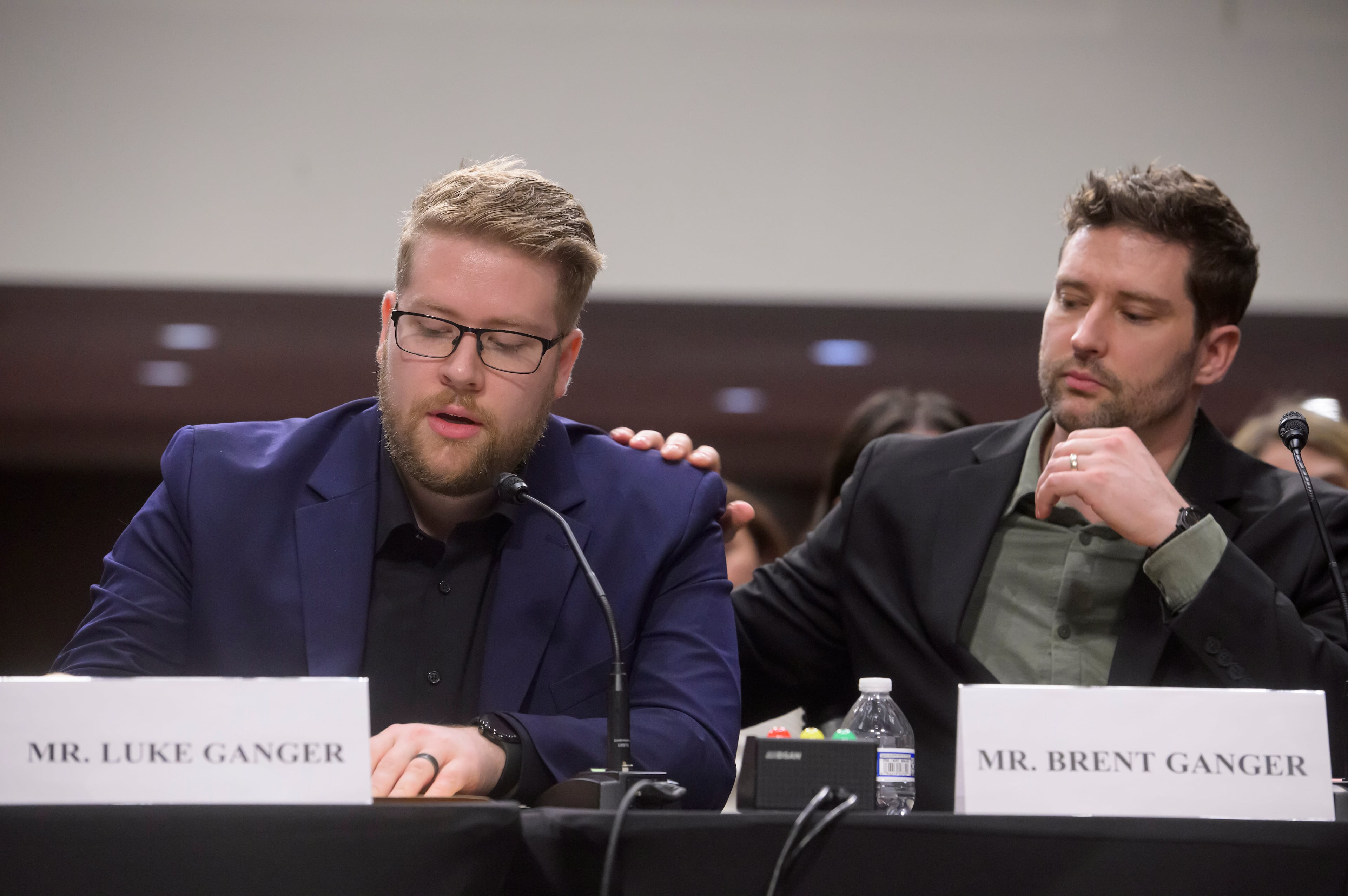How Gen Z picks up the mantle in suicide prevention

Brooke Foxman grew up in the quiet enclave of Roswell, but, as she discovered, even suburbia isn’t immune to big city troubles.
Foxman had three mutual childhood friends who took their lives, and the grief that followed for her and her younger brother was hard and confusing.
“Unfortunately, from the time I was a freshman in high school until I was a junior in college, we lost a kid in our high school every single year,” said the 25-year-old Foxman. “Mostly to suicide, unfortunately.
“Trying to understand grief and suicide at such a young age was something my community had never experienced. And then, we continued to experience it for years.”
Suicide rates among Zoomers (those born between 1997-2012) soared during the pandemic, according to the Centers for Disease Control and Prevention. Now, suicide prevention groups are counting on Gen Z to speak out about mental illness.
Foxman, who works in business development and lives at The Battery Atlanta, found that getting involved with suicide prevention helped turn her grief into something positive.
The young professional signed up to help after hearing Lynn Prothero speak on the subject at a Roswell Rotary Club meeting. Prothero, also from Roswell, serves on the Georgia Chapter of the American Foundation for Suicide Prevention (AFSP) and invited others to join her in the fight for better mental health.
Foxman has since become a leader with Georgia AFSP, serving on the Junior Board and the Board of Directors.
Earlier this year, she helped to organize the chapter’s annual spring fundraiser, Party for Prevention, which raised more than $19,000 to support suicide prevention initiatives across the state. It was planned with Gen Z in mind – a band, an auction and a craft brewery location.


The 20th Annual Atlanta Out of Darkness Community Walk, held at Piedmont Park on Nov. 5, also drew crowds of young professionals. The walks are planned each year by a group of dedicated suicide loss survivors, and raise money to help reduce the suicide rate in Georgia and bring hope to those impacted by suicide.
Foxman said young people come out to the walks and other prevention events – like hot yoga and restaurant get-togethers – because they have been affected by suicide in some way.
“Everyone has been touched by it in some shape or form,” she said, “and it means a lot to see everyone come together and raise money for a cause that impacted our community.”
Talking openly about mental health struggles and knowing the suicide prevention hotline number – 988 – are two of the most important interventions, Foxman said.
As a generation that grew up in the spotlight of social media, Zoomers are “used to putting themselves out there,” Foxman said. “They’re not afraid to say: ‘I’m struggling with mental health.’”
Dispelling myths associated with suicide is also important, said AFSP Georgia Board Member Roland Behm. Asking someone about their struggles will not cause them to take their life, he said.
“The coming generation is much more willing to talk about behavioral health, mental health, and suicide; by doing that, you reduce the stigma associated,” Behm said.
In 2019, Behm lost his son, Kyle, to suicide. The younger Behm had been diagnosed with bipolar disorder as a 21-year-old college junior. The father and son had worked together to end stigmas and injustices for people with mental illness.
“This is not a challenge that’s going away. We need to be able to be upfront and say this is a public health issue,” Behm said.
Georgia’s robust advocacy for mental illness has paved the way for improved services in mental illness.
In 2022, state lawmakers passed the Mental Health Parity Act, which aims to improve access to mental health and substance use disorder treatment for all Georgians.
AFSP Georgia is now asking the state to move toward EmPATH Units to deliver acute behavioral healthcare to patients in crisis in a calm, therapeutic setting, instead of a hospital emergency room. EmPATH stands for “Emergency Psychiatry Assessment, Treatment and Healing.”
Behm said other states have implemented this system in hospitals and institutions, and results are encouraging, with 75% of patients released to go home instead of being hospitalized.
“This is what I’m meant to be doing,” said Behm of his advocacy with AFSP Georgia. “We can do so much more to help individuals who might be suicidal and create environments for our children as they grow and process through life.”

MORE DETAILS
Atlantans have raised $410,000 so far at the 20th Annual Out of the Darkness Community Walk on Nov. 5 at Piedmont Park. Fundraising will continue through the end of the year. The Atlanta Out of the Darkness walks have raised $4 million since the first walk took place in 2003.
Information: afsp.org/atlanta
More people died from suicide in the United States last year than any other year on record, according to CDC provisional data.
Are you in a crisis? Call or text 988, the Suicide and Crisis Lifeline.

